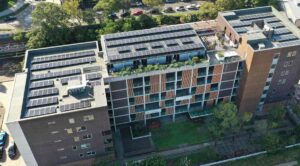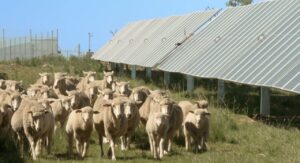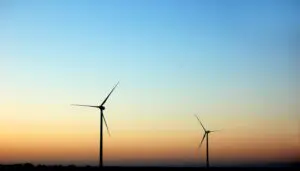Spark Infrastructure is to open its books – and possibly seek rival offers – after an overseas consortium led by Kohlberg Kravis Roberts & Co (KKR) lifted their takeover offer for the network and renewable energy investor by more than half a billion to $5.2 billion.
Spark, which owns stakes in SA Power Networks, Victoria Power Networks and transmission company TransGrid, and is developing a multi-billion dollar portfolio of wind, solar and storage, rejected the previous offers put forward by KKR and the Ontario Teachers’ Pension Plan Board.
But the Spark board is now ready to talk after the latest bid of $2.95 a share (up from the first offer of $2.70 and the second at $2.80), and has agreed to open its books on a “non-exclusive” basis, presumably with a view to attracting interest from other parties.
The latest bid represents a 26 per cent premium to the value of Spark Infrastructure shares compared to its share price immediately before the launch of the takeover bid, and says it starts to reflect some of the growth value of the business.
Infrastructure assets such as networks have usually been seen as a safe if unexciting investment. But Spark’s new push into renewables – first with the 100MW Bomen solar farm, and more recently with plans for the 2.5GW Dinawan wind, solar and storage hub in NSW and another 1.2GW of the same technologies, opens up a new line of business.
The board said it is confident that Spark remains a high-value business with solid growth potential, regardless of whether the company was ultimately taken over.
“The Board considers that Spark Infrastructure has a high quality and scarce group of regulated assets that have a very attractive future and is well positioned to continue to deliver an attractive yield now with franking credits,” the board said.
“Complementing its reliable and inflation-linked revenues, Spark Infrastructure’s investment portfolio also has strong growth prospects in its underlying high quality asset base, and has strong ESG credentials given its important role in supporting the multi-decade energy transition to a lower carbon future.”
The Dinawan Energy Hub represents a major expansion of Spark’s business into generation infrastructure, taking advantage of the substantial new investments in transmission network infrastructure needed to facilitate a replacement of ageing fossil fuel generation fleets.
“Following careful consideration, and consultation with its advisers, the Board of Spark Infrastructure considers that it is in the interests of Spark Infrastructure’s securityholders to engage further with the Consortium,” the board said in a statement.
“Accordingly, Spark Infrastructure has decided to provide the Consortium with the opportunity to conduct due diligence on a non-exclusive basis.”









